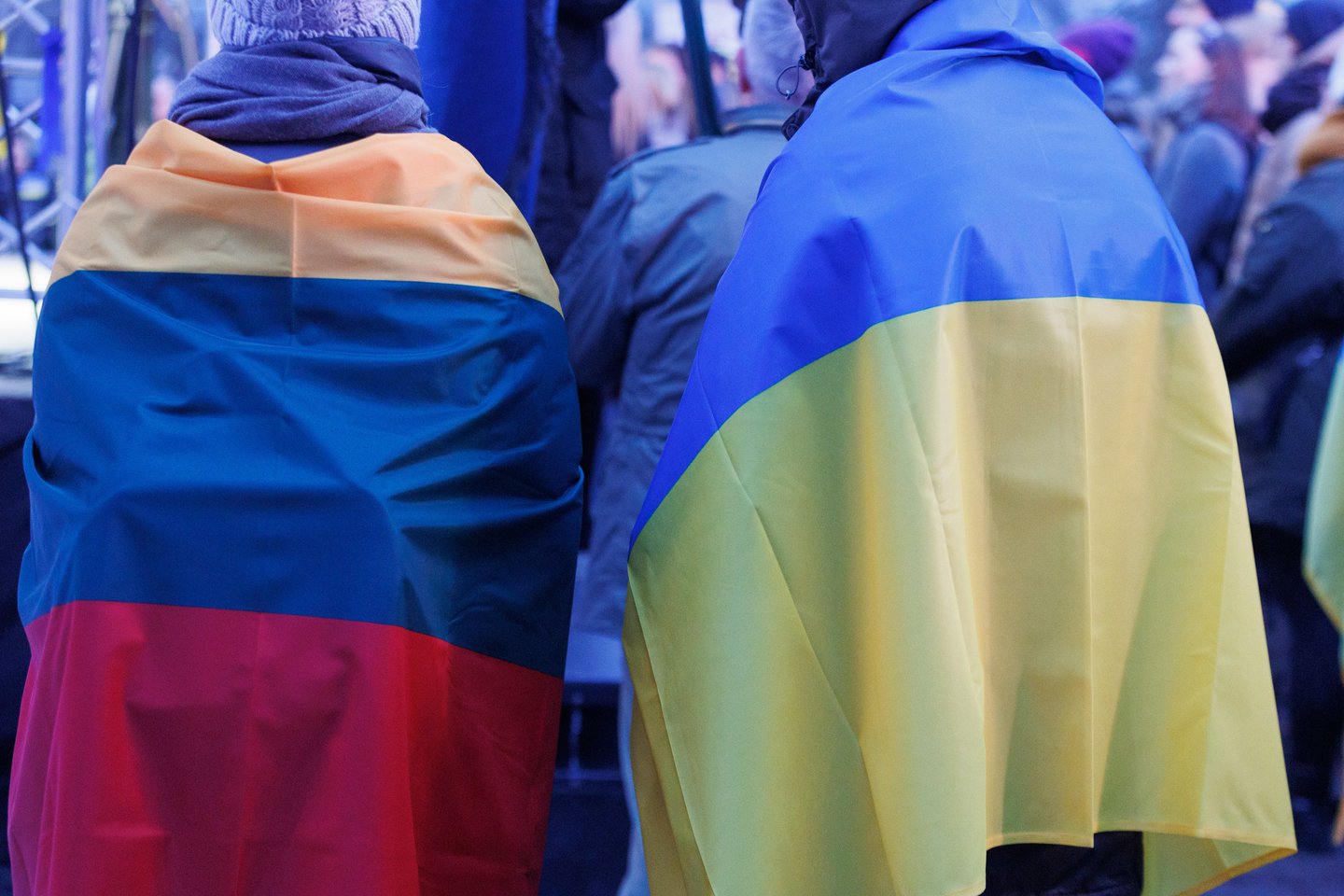Vilnius has always been multinational. Not to mention the inter-war period, when our capital was occupied by Poland and dominated by Poles and Jews, while Lithuanians made up only a few per cent of the population. And for a long time after the war, it was a non-Lithuanian city.
Despite the officially declared Soviet friendship between the peoples, tensions between Lithuanians and Russians from all over the Soviet Union were palpable during this period, and there was also many military personnel who had served in Lithuania living in the city. Older generations remember how these people used to insist that everyone speak only Russian at events.
This is a thing of the past, but people's psychological traumas remain at a subconscious level for a long time.
The confrontation between Lithuanians and Russians that was felt during the Soviet era can still cause distrust, especially among older people, of anyone who does not speak Lithuanian, even though the causes of the political strife have long since disappeared.
However, there is no real national confrontation in Lithuania now. The Vilnius City Tourism and Business Development Agency „Go Vilnius“ organised a festival for foreigners living in Vilnius for the first time and was interested in their experiences, communication with Lithuanians, and attitudes towards life in the capital.
Most of the respondents like Vilnius and are not disappointed with their decision to settle here. Around 80% of foreigners answered this way. They praise the Lithuanian capital for its compactness, greenery and cosiness and find Lithuanians friendly and helpful.
Often, they do not appreciate the advantages of their own city. For example, a long-time Frenchman living in Vilnius claims that in French cities, he would have to spend up to 4 hours in traffic every day, and it would be impossible to spend time in nature, whereas in the Lithuanian capital, he avoids the debilitating „work-home-sleep“ regime.
For foreigners, especially those from countries richer than Lithuania, it is not only the city's amenities and social infrastructure that influence their decision but even restaurants and food choices.
In this respect, Vilnius has also improved in terms of its perception – foreigners can now easily find the food they are used to, and restaurants offering a variety of culinary experiences have appeared.
However, foreigners, especially those who have recently settled in Lithuania, also face serious challenges, finding it difficult to make friends with Lithuanians and integrate into the social and cultural life of our country.
Most of the Go Vilnius respondents said that it is not easy to make friends quickly and integrate into local life. For many recent arrivals, Lithuanians seemed to be closed and not very friendly people – even neighbours they met on the stairs did not say hello to them at first until they met them in person.
Apparently, this is an accurate observation – from the outside, it is sometimes better to see some of the less attractive Lithuanian social habits.
On the other hand, foreigners admit that Lithuanians become more hospitable and helpful as they get to know each other better. The ice of socialising is usually melted by networking with co-workers, and getting to know your neighbours helps, for example, by taking your dog for a walk.
Of course, personal relationships are determined by people's characters and interests, but the comments of foreigners are also a guide for public organisations on how to facilitate and speed up the integration of newcomers from other countries into Lithuanian communities.
Cultural events, festivals and meetings to which foreign nationals are specially invited are helpful for integration, but perhaps even more important is to provide them with the opportunity to learn the Lithuanian language.
Of course, foreigners have to be willing to learn it themselves – after all, and some Russian-speaking Vilnius residents used to be able to speak no Lithuanian even after living here for 30–40 years. Now the situation is completely different: most of the foreigners settled in our country want to learn Lithuanian, but they lack the conditions and the means to learn it.
Good conditions for foreigners to learn Lithuanian should be a concern of the state because their work is needed for the Lithuanian economy.
After all, most of the people who come from Western countries are engaged in business or are highly skilled professionals.
More than 65 000 Ukrainian war refugees have settled in Lithuania since Russia attacked Ukraine. Even about half of the working-age arrivals – 17.4 thousand – are already working, paying taxes and are not dependent on our country's social system. According to the European Commission, this is the best employment rate for Ukrainian war refugees in the EU.
The vast majority of them – 65.6% – have become middle-skilled workers. A quarter is satisfied with low-skilled jobs, while 8% of Ukrainians have become highly skilled, although the number of graduates is significantly higher. They need to be helped to learn the Lithuanian language so that they can successfully adapt to Lithuania.
The EU has long been free of single-ethnic societies. Neither can Lithuania.
